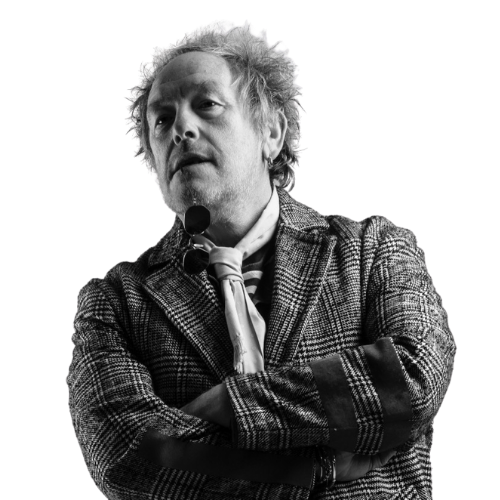About
The course teaches students comprehensive and specialised subjects in theology; it develops skills in critical thinking and analysis. By exposing students to both the broad themes of theology, philosophy and specialised topics and key historical figures, students will gain an advanced understanding of the field.
How students have found success through Woolf
Course Structure
About
Independent study can play a vital role in a student’s education. Independent study allows the student to explore a topic of interest under the close supervision of a faculty member who has agreed to direct the student’s work. The module may include directed readings, applied work, assisting the faculty member with a research project, carrying out an independent research project, or other activities deemed appropriate by the supervising faculty member and academic board. Regardless of the nature of the experience, the work must culminate in a formal paper.
Teachers



Intended learning outcomes
- Critical knowledge of received theological ideas.
- Diverse scholarly views on theology.
- Specialised knowledge of key strategies related to the analysis of theological ideas.
- Autonomously gather material and organise it into a coherent presentation or essay.
- Employ the standard modern conventions for the presentation of scholarly work and scholarly referencing
- Apply an in-depth domain-specific knowledge and understanding to the evaluation of theology
- Remediate deficient areas of knowledge, behaviour, or skills.
- Develop or enhance skills in project identification, development, and management, implementation, evaluation, communication, and/or dissemination.
- Develop or enhance skills in analysing, synthesising, and integrating theological information or experiences.
- Expand current knowledge in a specific area of interest related to theology.
About
This module explores the unconscious act by examining theories of repetition put forth by psychoanalysts and philosophers over time. To understand the mechanisms at work, we first review Freud’s writings on the unconscious, as well as his theories of remembering, repeating, and working through unconscious material. We survey philosophers who came before him who arguably influenced his thinking, including Nietzsche and Schopenhauer. Students then will examine theories of the unconscious and repetition in Lacan and Deleuze, and expound upon them via philosophers of the Ljubljana school. We discuss the act in theatre and film and the ways in which unconscious dynamics are mirrored and re-enacted therein. We conclude by reviewing modern writings on the unconscious in the digital age, bringing psychoanalytic philosophy to the present day as we look at the ways in which psychoanalytic thinking may help us understand our current culture and theology, as well as conversely how the digital age allows for a better understanding of psychoanalytic theory and practice.
Teachers




Intended learning outcomes
- Critical knowledge of received psychoanalytic ideas
- Specialised knowledge of key strategies related to the analysis of psychoanalytic philosophy ideas.
- Diverse scholarly views on psychoanalytic philosophy
- Autonomously gather material and organise it into a coherent presentation or essay
- Employ the standard modern conventions for the presentation of scholarly work and scholarly referencing
- Apply an in-depth domain-specific knowledge and understanding to evaluation of psychoanalytic philosophy thinking.
- Apply a professional and scholarly approach to research problems pertaining to various psychoanalytic philosophy theories
- Create synthetic contextualised discussions of key issues related to theories of psychoanalytic philosophy
- Solve problems and be prepared to take leadership decisions related to the methods and principles of research
- Efficiently manage interdisciplinary issues that arise in connection to psychoanalytic philosophy theories.
- Demonstrate self-direction in research and originality in solutions developed for psychoanalytic philosophy.
- Act autonomously in identifying research problems and solutions related to at least one psychoanalytic thinking.
About
Teachers


Intended learning outcomes
- Critical knowledge of Epistemology
- Specialised knowledge of key strategies related to Epistemology
- Diverse scholarly views on Epistemology
- Autonomously gather material and organise it into a coherent presentation and essay.
- Critically evaluate alternative approaches to theology on the basis of academic scholarship and case studies, demonstrating reflection on social and ethical responsibilities
- Apply an in-depth domain-specific knowledge and understanding to the concepts of Epistemology.
- Employ the standard modern conventions for the presentation of scholarly work and scholarly referencing
- Efficiently manage interdisciplinary issues that arise in connection to Epistemology
- Act autonomously in identifying research problems and solutions related to evaluations of Epistemology.
- Create synthetic contextualised discussions of key issues related to Epistemology
- Demonstrate self-direction in research and originality in solutions developed for evaluations of Epistemology.
- Apply a professional and scholarly approach to research problems pertaining to Epistemology
- Solve problems and be prepared to take leadership decisions related to the methods and principles Epistemology.
About
Teachers



Intended learning outcomes
- Critical knowledge of the theories and ideas of theological figures.
- Diverse scholarly views on various theological theories.
- Specialised knowledge of key strategies related to theological theories.
- Employ the standard modern conventions for the presentation of scholarly work and scholarly referencing
- Apply an in-depth domain-specific knowledge and understanding to evaluate different views on philosophical theories.
- Develop new skills in response to emerging knowledge and techniques and demonstrate leadership skills and innovation in complex and unpredictable contexts
- Autonomously gather material and organise it into a coherent presentation or essay.
- Demonstrate self-direction in research and originality in solutions developed for analysing the ideas and life of a unique theological figure.
- Apply a professional and scholarly approach to research problems pertaining to the ideas and life of a unique theological figures.
- Create contextualised discussions of key issues relative to the ideas and life of a unique theological figure
- Solve problems and be prepared to take leadership decisions related to the methods and principles research.
- Efficiently manage interdisciplinary issues that arise in connection to the ideas and life of a unique theological figure
- Act autonomously in identifying research problems and solutions related to the ideas of a unique theological figure.
About
Teachers


Intended learning outcomes
- Diverse scholarly views on critical paradigms.
- Critical knowledge of received theological paradigms
- Specialised knowledge of key strategies related to the analysis of theological paradigms.
- Demonstrate advanced, innovative, and multi-disciplinary problem-solving skills
- Employ the standard modern conventions for the presentation of scholarly work and scholarly referencing.
- Apply an in-depth domain-specific knowledge and understanding to evaluation of critical paradigms in theology.
- Autonomously gather material and organise it into a coherent presentation or essay
- Create synthetic contextualised discussions of key issues related to each critical paradigm.
- Manage interdisciplinary issues that arise in connection to each theological paradigm.
- Demonstrate self-direction in research and originality in solutions when engaging theological paradigms.
- Solve problems and be prepared to take independent decisions related to the methods and principles of research.
- Apply a professional and scholarly approach to research theological problems.
- Act autonomously in identifying research problems and solutions related to at least one theological paradigm in the course.
About
Teachers


Intended learning outcomes
- Critical knowledge of the genealogical method in philosophy as it applies to theology.
- Diverse scholarly views on the genealogical method in philosophy as it applies to theology.
- Specialised knowledge of key strategies related to the genealogical method in philosophy as it applies to theology.
- Autonomously gather material and organise it into a coherent presentation or essay
- Apply an in-depth domain-specific knowledge and understanding to evaluations of the genealogical method in theology.
- Employ the standard modern conventions for the presentation of scholarly work and scholarly referencing
- Critically evaluate alternative approaches to theology on the basis of academic scholarship and case studies, demonstrating reflection on social and ethical responsibilities
- Act autonomously in identifying research problems and solutions related to the genealogical method in philosophy as it applies to theology.
- Solve problems and be prepared to take leadership decisions related to the methods and principles of research.
- Create synthetic contextualised discussions of key issues related to the genealogical method in philosophy as it applies to theology.
- Efficiently manage interdisciplinary issues that arise in connection to the genealogical method in philosophy as it applies to theology.
- Apply a professional and scholarly approach to research problems pertaining to the genealogical method in philosophy as it applies to theology.
- Demonstrate self-direction in research and originality in solutions developed for the genealogical method in philosophy as it applies to theology.
About
The module will introduce the student to the key concepts and ideas within the academic subject, “Philosophical Theology” broadly construed. The field of philosophical theology emerged in the wake of a dispute between the relationship between reason and faith relative to truth claims about the world and other transcendent phenomena. This module will unfold in the following three phases:
The origins of philosophical theology (the late mediaeval period to early modern)
Theology in the wake of the Enlightenment (17th-20th Century)
Contemporary theology within the postmodern epoch (20th-21st Century) Part 1 will begin by examining truth claims made by Christian philosophers and theologians, especially Augustine of Hippo, Thomas Aquinas, William of Ockham, and Duns Scotus vis-a-vis articles of faith. We will critically examine the epistemological apparatus of these claims in hopes to shed light on justification of belief. Part 2 will move from the scholastic mode of dialectical reasoning to the foundational mode established through the French figure Rene Descartes. This module will carefully examine Descartes' method of thinking and reasoning. We will further relate this “method” of thinking to the foundations of the European Enlightenment. Part 3 will move into the 20th and 21st Century and examine the rise of “Radical Theology” within the North American and European contemporary context. This section of Radical Theology will offer an historical and contextual overview of the various streams in radical theological thought. The seminar will also address the potentials and possibilities Radical Theology offers those who are interested in redefining faith and community life in the 21st century.
Teachers


Intended learning outcomes
- Diverse scholarly views on Philosophical Theology.
- Specialised knowledge of key strategies related to the analysis of Philosophical Theology
- Critical knowledge of received Philosophical Theology views.
- Communicate about theology clearly and unambiguously to specialised and non-specialised audiences
- Employ the standard modern conventions for the presentation of scholarly work and scholarly referencing
- Apply an in-depth domain-specific knowledge and understanding to evaluation of Philosophical Theology.
- Autonomously gather material and organise it into a coherent presentation or essay
- Demonstrate self-direction in research and originality in solutions when engaging the phases of Philosophical Theology.
- Solve problems and be prepared to take leadership decisions related to the methods and principles of research
- Efficiently manage interdisciplinary issues that arise in connection to each of the phases of philosophical theology
- Act autonomously in identifying research problems and solutions related to at least one Philosophical Theology phase.
- Apply a professional and scholarly approach to research the philosophical problems pertaining to theology.
- Create contextualised discussions of key philosophical issues relative to theology within different historical periods
About
The module will introduce the students to the key concepts and ideas that
have given rise to Radical Theology, offering an historical and contextual
overview of the various streams in radical theological thought. The module will also address the potentials and possibilities Radical Theology offers to those who are interested to redefining faith and community life in the 21st century.
Teachers



Intended learning outcomes
- Specialised knowledge of key strategies related to the analyses of Radical Theology ideas.
- Critical knowledge of received Radical Theology thought
- Diverse scholarly views on Radical Theology
- Employ the standard modern conventions for the presentation of scholarly work and scholarly referencin
- Autonomously gather material and organise it into a coherent presentation or essay
- Apply theories related to theology that inform and sustain one’s contributions to the worl
- Apply an in-depth knowledge and understanding to the analyse radical theological ideas.
- Solve problems and be prepared to take leadership decisions related to the methods and principles of research
- Demonstrate self-direction in research and originality in solutions when assessing the various streams of radical theological ideas.
- Act autonomously in identifying research problems and solutions related to at least one view of Radical Theology
- Create synthetic contextualised discussions of key issues related to historical view of Radial Theology
- Efficiently manage interdisciplinary issues that arise in connection to key concepts and ideas of Radical Theology.
- Apply a professional and scholarly approach to research problems pertaining to Radical Theology
About
Teachers
Intended learning outcomes
- Attain a comprehensive overview of the most important primary and secondary literature in the field of enquiry.
- Possess expert knowledge at an MQF 7 level of the topic addressed in the dissertation.
- Become familiar with different types of textual and non-textual evidence used for the field of enquiry.
- Understand key theoretical, methodological, or historiographical debates for the field of enquiry
- Deliver a dissertation in a structured, well-scoped, and orderly way.
- Understand standard modern conventions concerning the presentation of scholarly work and scholarly referencing
- Summarise a wide-ranging body of information from multiple sources.
- Apply historical and critical approaches to the interpretation of primary and secondary sources.
- Grasp the theoretical issues that affect the proposed field of enquiry and the relative strengths and weaknesses of alternative approaches in the secondary literature
- Display the competence to manage complex, sustained research on a problem in theology, and develop new interpretive strategies.
- Demonstrate practical skills in gathering information from a variety of primary and secondary sources and in applying it to specific political questions.
- Demonstrate the capacity for independent responsibility for a programme of research that contributes to professional knowledge.
Entry Requirements
Application Process
Submit initial Application
Complete the online application form with your personal information
Documentation Review
Submit required transcripts, certificates, and supporting documents
Assessment
Note: Not required by all colleges.
For colleges that include this step, your application will be evaluated against specific program requirements.
Interview
Note: Not all colleges require an interview.
Some colleges may invite selected candidates for an interview as part of their admissions process.
Decision
Receive an admission decision
Enrollment
Complete registration and prepare to begin your studies
.avif)










